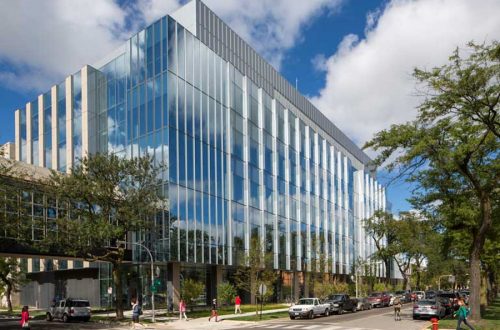Point: Students Who Catch COVID Should Be Sent to Stony Island. Counterpoint: Safe Spaces are Bad
Point: Students Who Catch COVID Should Be Sent to Stony Island
By Provost Ka Yee C. Lee, August 2020
Public health guidelines call for anyone who has tested positive for COVID-19 to be isolated until at least 10 days have passed since symptoms appeared and at least 24 hours have passed since the resolution of fever without the use of fever-reducing medications and improvement of other symptoms. For undergraduates living in University residence halls who test positive, the University has identified isolation spaces where they can recover if they have symptoms, and where there is a low risk of exposing others. A space being prepared for this potential use is the former Stony Island residence hall, which will not be used as a regular residence hall this Autumn. Students who have tested positive will stay in apartments at Stony Island or another identified isolation space during the isolation period. Students in isolation housing will have meals delivered to them, will have telehealth access to our team of on-campus physicians at UChicago Student Wellness, and will receive regular check-ins from our clinical staff.
Counterpoint: Safe Spaces are Bad
By Dean Jay Ellison, August 2016
Once here you will discover that one of the University of Chicago’s defining characteristics is our commitment to freedom of inquiry and expression. This is captured in the University’s faculty report on freedom of expression. Members of our community are encouraged to speak, write, listen, challenge, and learn, without fear of censorship. Civility and mutual respect are vital to all of us, and freedom of expression does not mean the freedom to harass or threaten others. You will find that we expect members of our community to be engaged in rigorous debate, discussion, and even disagreement. At times this may challenge you and even cause discomfort.
Our commitment to academic freedom means that we do not support so called ‘trigger warnings,’ we do not cancel invited speakers because their topics might prove controversial, and we do not condone the creation of intellectual ‘safe spaces’ where individuals can retreat from ideas and perspectives at odds with their own.



